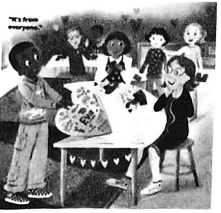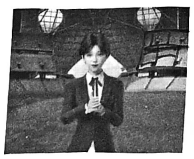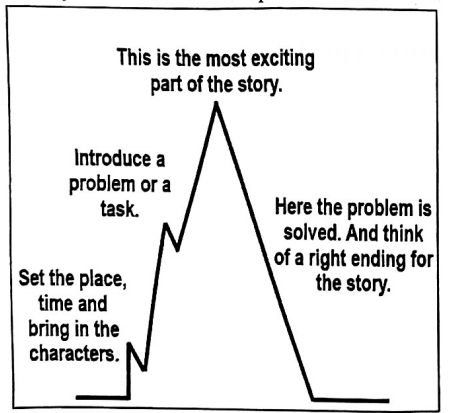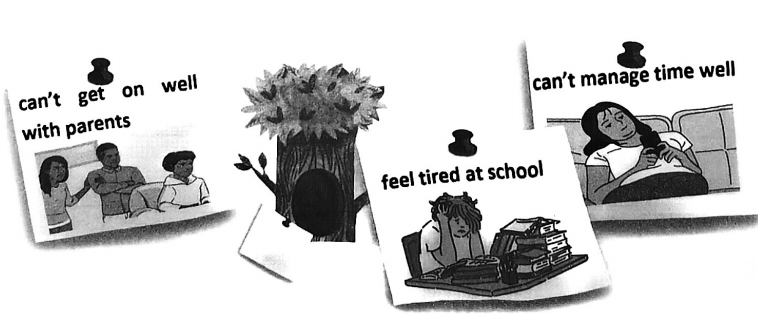阅读下面短文,掌握大意,从每小题所给的 A、B、C、D 四个选项中选出最佳选项。

Chase counted his valentines (瓦伦丁节卡片) for his classmates one more time as he put an eraser into each small bag. He was ready for the valentine party tonight ear Ms. Robins and. When Chase got to school, he found a new1 looking around shyly.
"This is Eva,"said Ms. Robins."Will someone show 2 around today?" Chase put up his hand. He liked showing the new kids around and helping them feel3 .
"Thanks, Chase," Ms. Robins said. "Now let's get busy with our work so we can finish everything in time for the4 ." That was when Chase realized he didn't have a valentine5 Eva. No one else would have one, either. All day long, he was6 not to mention the party. He didn't want to let Eva down.
At lunchtime, as Chase ate the heart-shaped candy on the plate, he suddenly7 that kids often give candy hearts as valentine gifts. He told it to the kids around him8 . Soon everyone at the table was nodding and talking about it.
When they were back in the classroom, Chase9 Eva to sit with him. He made sure Eva sat with her back to the room, 10 she wouldn't notice other students passing around a big paper heart.
Before long, it was party time. They played games and had fun. The room was filled with laughter. Chase saw the11 look on Eva's face as she found small gift bags on other's desks but nothing on hers.
Finally, they gave away their valentines. "Here's your valentine, Eva," Chase said, placing the big red heart in front of her. "It's from12 ." Eva stared at the beautiful valentine that was as big as her desktop. Then one by one, Chase and his classmates 13 some of their gifts and put them on Eva's desk. Soon fruit cakes, candy, erasers,and pencils14 Eva's desk too.
"We wanted you to have a15 Valentine's Day too," said Chase.
"Thank you," Eva said, smiling at the friendly faces around the room.






 Story structure is different from one to another, but mostly will follow this simple mountain shape.
Story structure is different from one to another, but mostly will follow this simple mountain shape.
